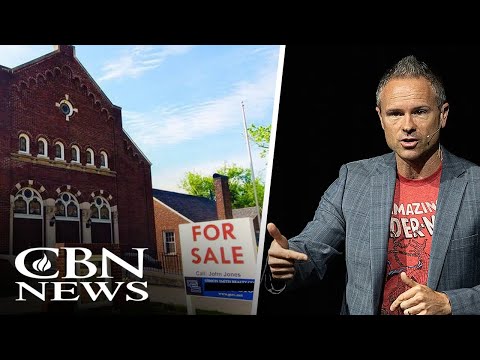In recent discussions about the state of Christianity in America, there seems to be a shift that is both intriguing and encouraging for many within the evangelical community. While some reports continuously herald a decline in religious adherence, recent statistics suggest that this trend may be leveling off, particularly as younger generations of believers begin to emerge alongside the older, more secular groups. This phenomenon invites a deeper exploration of why people, especially younger generations, may be more open to spiritual conversations.
One compelling idea presented is the “generational replacement” effect. As older generations of predominantly religious individuals pass on, younger generations characterized by more secular beliefs rise in prominence. Yet, instead of an outright rejection of faith, there appears to be a burgeoning curiosity about spirituality and an increasing awareness of the limitations of secularism. This yearning for meaning is evident in the growing interest surrounding cultural figures who openly discuss faith and the importance of values, including those who do not identify as Christians but acknowledge a need for foundational beliefs in society.
Among those leading the charge in discussions about faith are influential voices who, while not traditionally religious, advocate for the benefits of faith in public discourse. As faith-centered dialogue gains traction in mainstream conversations, evangelicals can recognize that many are grappling with fundamental questions about purpose and morality. This acknowledgment of spiritual hunger is something to embrace and use as a bridge to convey the relevance of Christian teachings in addressing the existential dilemmas faced by society.
Furthermore, the conversation around doubt and belief is vitally important for evangelicals aiming to connect with skeptics. The idea that having questions is not synonymous with unbelief serves as powerful encouragement. Believers who openly share their struggles can be a beacon of hope for those on a journey of faith. By demonstrating that doubt is a natural part of faith, Christians can foster a welcoming environment where individuals feel comfortable seeking truth without fear of judgment.
Growing interest in different spiritual practices, such as discussion of psychedelics and other alternative experiences, might indicate a quest for fulfillment beyond the material world. As evangelicals navigate this terrain, they can position their faith as a rich source of wisdom and truth through which individuals can find genuine hope and fulfillment. Engaging in thoughtful conversations around these topics can allow the church to meet individuals where they are and invite them into a relationship with Christ that promises security and purpose.
The current cultural landscape highlights a unique opportunity for evangelicals to reclaim conversations about faith in meaningful and transformative ways. Encouraging open dialogue about doubts, celebrating spiritual curiosity, and advocating for the importance of faith in public life can help illuminate the path for those in search of something greater. The heart of evangelism lies not just in addressing questions but also in inviting individuals into the life-altering relationship found in Jesus Christ, a message that continues to resonate across generations.



